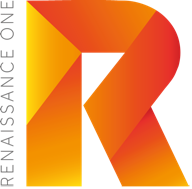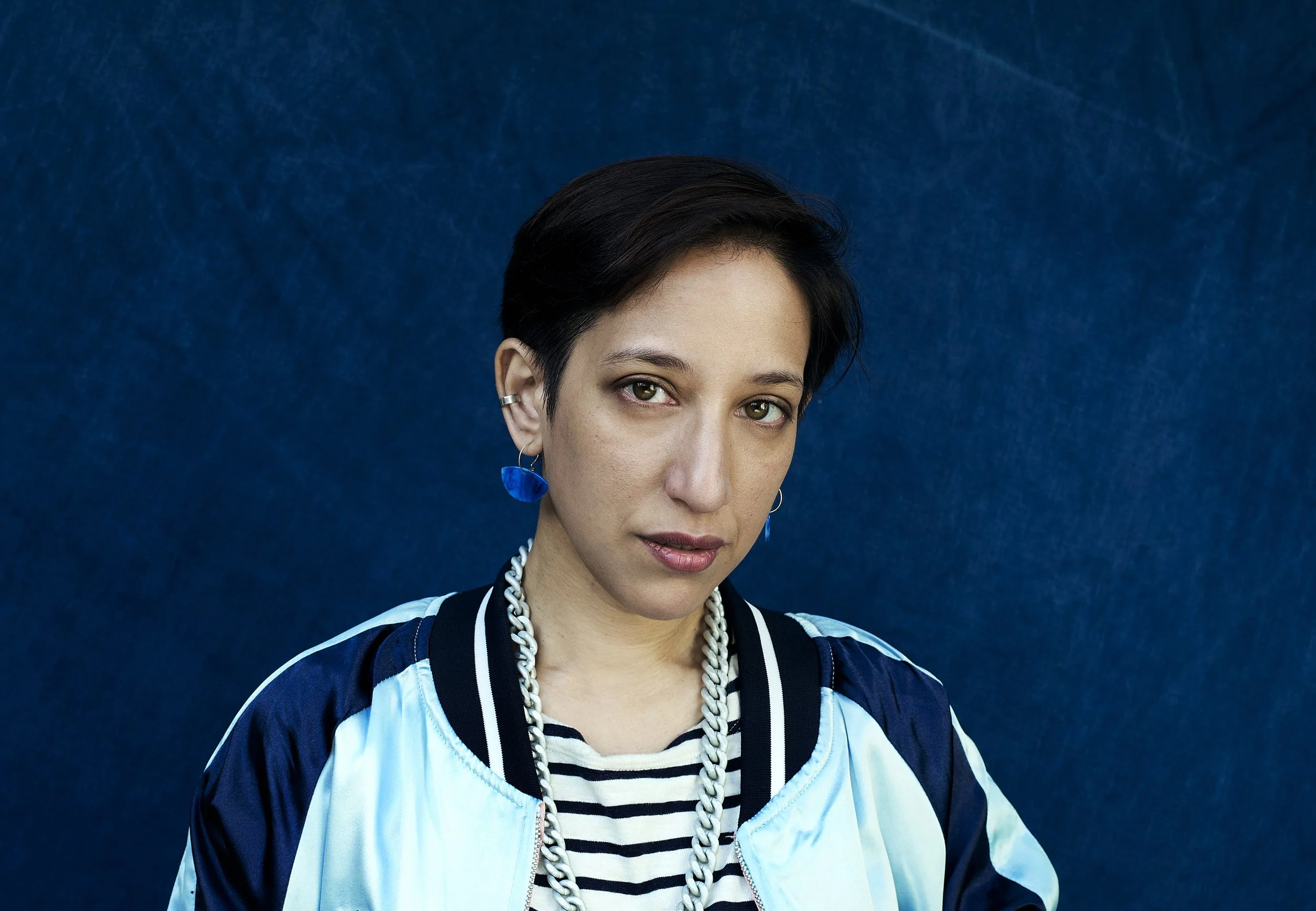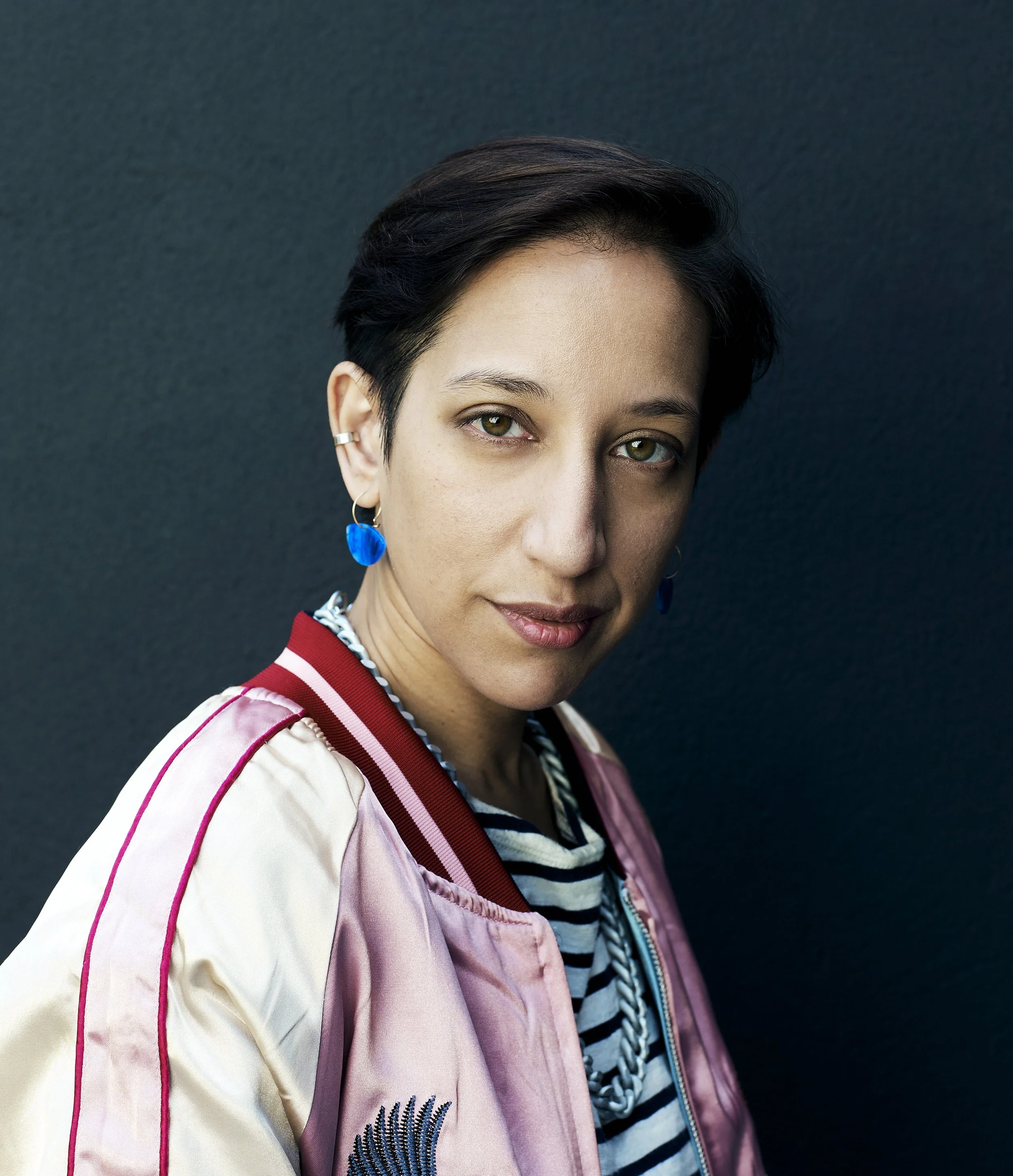Interview with Bidisha
/“You can’t be a journalist unless you’re genuinely interested in the world and in other people. Nobody on the planet wants to hear a journalist talk about themselves, so don’t. ”
Bidisha answered some questions for us ahead of her appearance as a guest speaker for the launch of Leena Dhingra’s ‘Exhumation’
Photo credit: SUKI DHANDA
What three words best describe you?
At work: focused, intentional, tough
At home: eccentric, teenagerish, moody
In my dreams: beautiful and dangerous
What do you most enjoy about being a journalist?
Going out, meeting people, taking up space in the world, externalising my energy, seeing the world, listening and asking questions (and talking) for a living, being in contact with lots of different worlds and individuals, burning energy zipping around town/the world. Variety, food for thought, novelty, speed, perspective. It doesn’t feel like work.
What is a creative masterpiece you wish you had written?
Any of the big franchise novel series of the past couple of decades – Harry Potter, Twilight, The Hunger Games. Not just for the obvious reasons (££££) but I’m also a reader of these series written by women and I love the deep, immersive storylines, the commitment of the authors themselves and the way these narratives clearly spoke to readers all over the world. I admire the authors’ ability to stay the course and round out their vision. I would love to write a ‘phenomenon’ series whose storytelling is so strong that it can sustain adaptation into different formats like films, graphic novels, games and anime, focused around the journey of a well imagined central character. I’m also mad about serialised online novels in translation – there are some Chinese works which were adapted into very successful TV series like The Untamed, Word of Honour, Addicted and Advance Bravely (the latter two by the writer Chai Ji Dan) which are very addictive to read and also have a similar phenomenal, immersive quality.
What's an important piece of insider knowledge you have as a journalist?
People’s actions always show you who they are, so give them time to reveal themselves and accept the perceptions you’re receiving. When someone shows you who they are, believe them. Talk less, observe more. Simplicity and directness work better than overt flattery or force. Body language rarely lies. The timeline of events is usually very telling. Short, clear, very pointed questions are hard to avoid answering (if you’re dealing with a slippery customer) – and even if you get an answer that’s not true, the interviewee’s manner of answering the question will tell you a lot. Contacts, networks, friendships and acquaintances are there to be cultivated sincerely and joyfully as yourself – ‘networking’ as such is fake and doesn’t work. You can’t be a journalist unless you’re genuinely interested in the world and in other people. Nobody on the planet wants to hear a journalist talk about themselves, so don’t.
Photo credit: SUKI DHANDA
What is the most challenging aspect of being a journalist?
At a career level: just surviving (in my case for nearly 30 years in magazines, newspapers, radio and TV) in an environment in which things are changing very rapidly. Cultural changes, viewing and readership habit changes, financing and rates of payment, technological changes, job security… ageism, sexism and racism…all these things are real challenges and it’s easy for momentum to drop and for events to overtake individual progress. It is relatively easy to start a career. The challenge is in maintaining one, creating a body of work across decades, building a professional relationship that counts for something and creating a career that is adaptive and lasting. I’ve withstood a lot of changes and outlasted many of my peers. But we’re all ‘content creators’ now, making free stuff for the internet. You write something, it comes out and twenty minutes later it dissolves back into the Net. How is this sustainable? Economically, personally, culturally? I don’t know the answer to that.
Do you find that there are any similarities between your career as a writer and a filmmaker? Any differences?
I don’t see the various things I do as being different from each other and don’t regard myself as a polymath. Journalism, writing, broadcasting, chairing, directing, costume styling, art directing, presenting, chairing, interviewing, making stills, acting, screenwriting….they are all the same to me…they all require exactly the same professional skills. Perhaps one distinction is that I work across both words and images – spoken, written and performed words and still and moving images - but otherwise the skills required are common to everything. Timeliness, careful thought, thorough research and planning, conscientiousness, working to a deadline, light-touch and sensitive reworking, budgeting skills, talent spotting in others, working with people to commission or provide direction, diplomatic and timing skills, communication ability, intuition mixed with basic professionalism. In terms of people I choose to work with I only have one rule: no arseholes. I have a red line about that. If you act out, you get thrown out.
Tell us about an upcoming project that excites you.
I launched my ongoing AURORA series of short films in 2020 as I was fascinated by the boom in online self-appointed self-help gurus, wellness advisors and other YouTubers putting themselves forward to offer advice, healing and affirmations to strangers. There are three more films yet to come, performed by the fabulous Alessia Patregnani.
In visual art I’m working on lots of new works on paper which are beautiful and intense and time-consuming and I have absolutely no idea what to do with them.
It’s impossible to plan at the moment but in 2022 I’d like to direct my first feature film – more details to come. Generally speaking I’d like to do more screen performing in films. I just like wearing the costumes and being there.



